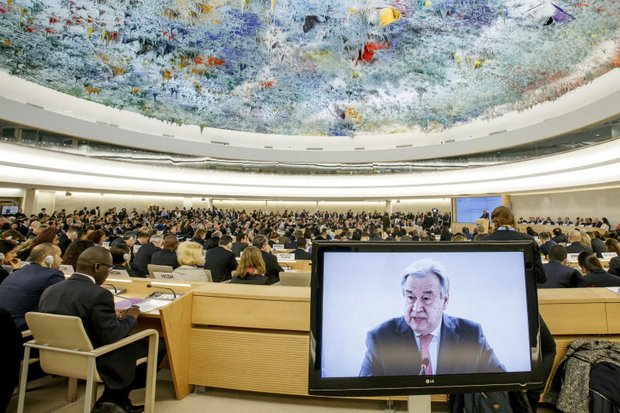
GENEVA - Thailand has dropped legislation to criminalise torture and disappearances after years of working on the bill, the United Nations human rights office said on Tuesday, leaving state employees unaccountable for serious crimes.
Torture is not a criminal offence in Thailand and perpetrators cannot be prosecuted, human rights spokeswoman Ravina Shamdasani told a UN briefing in Geneva.
She said individual victims have won compensation in the past, but there is no legal punishment for torture or for killing human rights activists.
"Clearly this is not an acceptable state of affairs for such serious human rights violations," she said, adding the office was informed last week that the National Legislative Assembly appointed by the military regime had decided to shelve pending legislation.
The lack of a law on disappearances leaves a legal loophole that means security officials who abduct people and kill them, imprison them or send them to a third country may never be brought to justice.
"What ends up happening is where you don’t find a dead body or where, after a certain amount of time you don’t have enough evidence, they just close the case," Ms Shamdasani said.
"The decision not to enact the bill is also a devastating blow to the families of those who have disappeared. They have the right to know the truth."
A UN working group on enforced disappearances recorded 82 cases in Thailand since 1980, including high-level disappearances of Muslim lawyer Somchai Neelapaijit in 2004 and Porlajee "Billy" Rakchongcharoen, a Karen activist who disappeared after being detained by officials of Kaeng Krachan National Park in Phetchaburi in April 2014.
Ms Shamdasani said the Department of Special Investigation (DSI) recently "suspended" an inquiry into Somchai's disappearance due to the lack of a codified law on the crime, Shamdasani said.
There were also an increasing number of criminal cases being brought against people who reported allegations of torture, she said.
Amnesty International said last year Thailand's military government has allowed a "culture of torture" to flourish since the army seized power in a 2014 coup, with allegations of beatings, smothering with plastic bags, waterboarding and electric shocks on detainees by authorities.
Bangkok rejects accusations of rights violations and a government spokesman said after the Amnesty report that investigations into allegations of torture had found no evidence of such abuse.